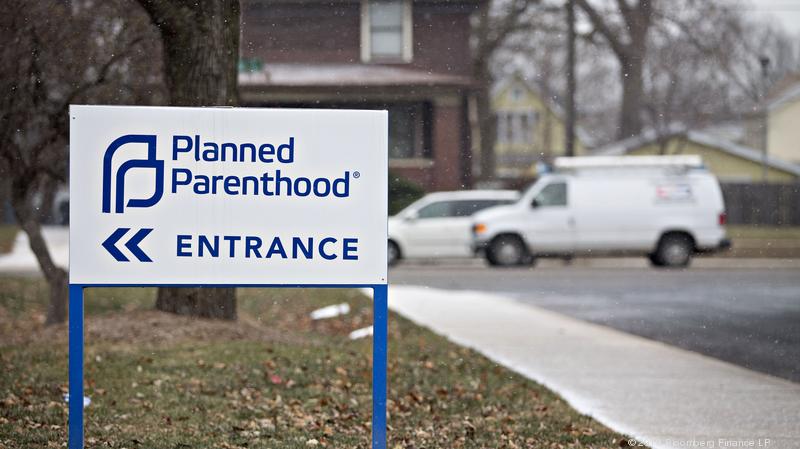As Republicans work out the details of their plans to overhaul federal healthcare law, left-leaning groups are campaigning against them.
Planned Parenthood could lose some of its funding if the current proposals become law. In response, the group’s political action arm launched a television ad in Colorado and other states with hopes of stripping that provision from the bills.
The 30-second Colorado ad is aimed at Senator Cory Gardner (R-Colorado), who's a member of the group of Republicans working on the Senate version of this bill.
It starts by bashing the process Republicans are using to work on the bill.
CLAIM: “Right now, behind closed doors, the Senate is planning to vote on a bill.”
VERDICT: Overstatement
This language could lead people to believe the Senate plans to vote on the bill behind closed doors. They can't do that.
In fact, the GOP released the Senate version Thursday morning.
What Republicans did-- was write the Senate version of the bill behind closed doors.
Gardner told KMGH-TV on Wednesday that he hadn’t seen the text of the healthcare bill, despite being on the committee tasked with drafting it.
And Sen. Mike Lee (R-Utah) expressed his frustration with the process in a Facebook video Tuesday.
"If you're frustrated by the lack of transparency in this process, I share your frustration. I share it wholeheartedly," Lee said. "The American people need and deserve to see legislation as it moves through the Senate."
It's fair game to criticize that, but the language used by Planned Parenthood in its ad is murky and makes the process sound even less transparent than it is.
The ad goes on to describe what the bill would do.
CLAIM: The bill would prevent women from getting the cancer and annual health screenings they need.
VERDICT: Needs Context
Planned Parenthood is basing this claim off language that’s in both the House and Senate bills, but it's not quite as wide-ranging as the ad makes it sound: It’s confined to people on Medicaid—the government healthcare plan for the poor.
Currently, Medicaid patients can go to Planned Parenthood for any service except for abortion.
Medicaid recipients haven’t been able to use their insurance for an abortion since the Hyde Amendment passed Congress in 1976.
The only exception to this rule is if a state decides to fund abortions for Medicaid patients with its own money. Seventeen states do this, but Colorado isn’t one of them.
The House and Senate bills expand the abortion restriction to include paying for any service at a clinic that is “primarily engaged in family planning services, reproductive health, and related medical care" or "provides for abortions" for any reason other than saving the life of the mother, incest or rape.
Planned Parenthood argues that since most its patients are low-income women, this could drastically cut the amount of money its clinics receive and could force dozens of them to close.
CLAIM: If Planned Parenthood closed clinics as result of this law, thousands of women – especially those in rural communities – could lose access to healthcare.
VERDICT: Needs Context
Planned Parenthood says its serves about 2. 7 million women annually at its 650 locations and performs approximately 330,000 abortions.
That translates into about 12 percent of its patients having an abortion each year.
The other 88 percent receive services like tests for sexually transmitted diseases and pregnancy, annual checkups, cervical cancer screenings and prescriptions for various forms of birth control.
The question is whether those women could find care elsewhere.
Republicans says yes.
They claim federally qualified health centers could fill that need. The government has about 9,800 health centers and 4,100 rural clinics nationwide.
But it’s not clear these centers could or would accept all the women who lose their coverage.
Rural health clinics don’t have to provide services to low-income people. They also don’t have to offer sliding pay scale or family planning services of any kind.
And both kinds of clinics would need money to hire more doctors and nurses to take on new patients.
The non-partisan Congressional Budget Office estimates that 15 percent of those women would lose access to their healthcare.
“The budgetary effects of this provision depend mostly on whether the clinics affected by the legislation would decide to continue providing services without Medicaid reimbursement. The extent to which federal funding would be replaced by nonfederal resources during the year in which the prohibition would be in effect is highly uncertain.
The amount replaced would depend on actions taken by such clinics and by others, including state and local governments. If none of the federal funds were replaced, CBO expects that some of the Medicaid beneficiaries who would obtain services from affected clinics under current law would not obtain services at all,” according to the CBO.
That’s part of Planned Parenthood’s claim. It says it’s the only women’s health clinic in 105 counties nationwide.
None of those counties are in Colorado, but in Chaffee County the Planned Parenthood clinic is one of two that provides a full range of birth control options, according to an interactive map from the National Campaign to Prevent Teen Pregnancy.
A full range of birth control options means the clinic provides long-term, implantable birth control options and IUDs in addition to the traditional pill.
BOTTOM LINE
The ad starts off with an overdramatic description of the process, but then points to some real issues that could affect Planned Parenthood and its patients -- even if there's some uncertainty over how many people would be unable to get the same care elsewhere.
As always though, there’s a caveat: The bill hasn’t passed the Senate yet, and it could always be changed.


